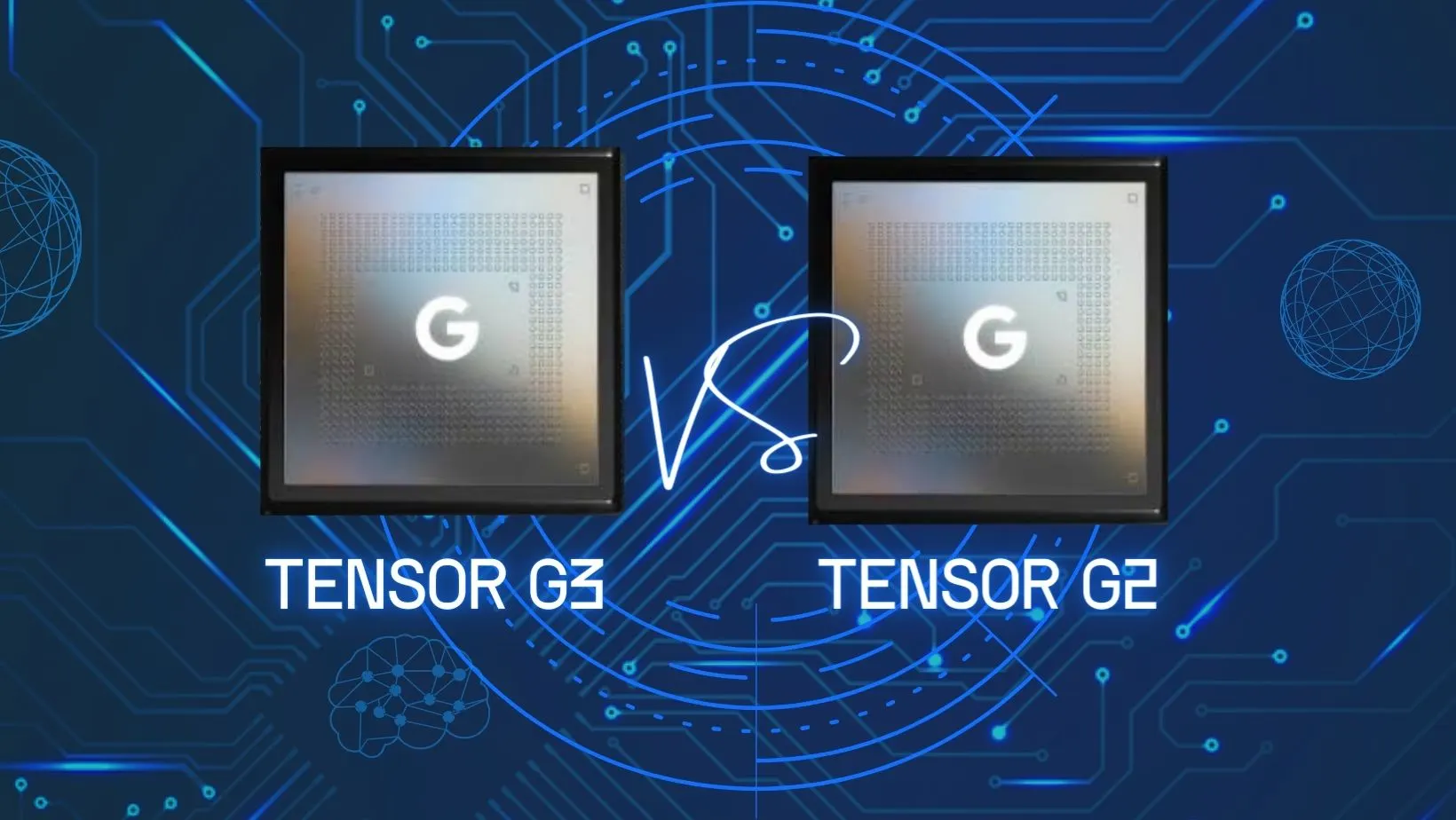Google Tensor G3 vs Tensor G2: Is the upgrade worth it?
Google has updated the Tensor series with the Tensor G3. The Tensor G3 serves to replace the Tensor G2 but is it worth upgrading to?
After relying on Qualcomm for processors for years, Google has come a long way in developing its own SoCs. This analysis will compare two of their offerings: the Tensor G3 and the Tensor G2. Additionally, we will address the question of whether it's worth upgrading from the Pixel 7 to the Pixel 8. Let's delve into the details.
Google consistently operates in the high-end segment of the smartphone market. Therefore, it's no surprise that their SoCs are designed to be top-of-the-line.
The most recent addition to their lineup is the Google Tensor G3. Serving as Google's flagship processor, the Tensor G3 replaces the Tensor G2 which it is up against. This powerful chipset powers the latest Pixel 8, 8 Pro, and potentially the Pixel 8a.
On the other hand, we have the Google Tensor G2. This SoC represents Google's effort to build upon its earlier Tensor chipset, which received mixed reviews. Like most Tensor SoCs, the Tensor G2 is a flagship SoC exclusively tailored for Google's smartphone range. You can find the Tensor G2 in devices such as the Google Pixel 7a, Pixel 7, and Pixel 7 Pro.
With this context in mind, let's proceed with the in-depth comparison. How does the Tensor G3 in the Pixel 8 series stack up against the Tensor G2 in the Pixel 7 series?
>> See: Google Tensor G3 vs Tensor G2 - Full Specs Comparison
Performance Comparison: Google Tensor G3 vs. Tensor G2
In terms of performance, the Google Tensor G3, featured in the Pixel 8 series, represents a significant leap ahead of the older Tensor G2, which powers the Pixel 7 series. The Tensor G3 harnesses the power of a Cortex X3 (2.91GHz) CPU and four Cortex A715 (2.37GHz) CPUs to handle resource-intensive tasks. In contrast, the Tensor G2 relies on last-gen Cortex X1 (2.85GHz) and Cortex A78 (2.35GHz) CPUs for demanding workloads.
As a result, the Tensor G3 in the Pixel 8 series offers at least a 25% performance improvement over the Tensor G2 in the Pixel 7 series. This substantial difference provides compelling grounds for upgrading from the Pixel 7 to the Pixel 8 series.
Gaming Performance: Google Tensor G3 vs. Tensor G2
While the Google Pixel series isn't primarily marketed as a gaming-focused phone, it is fully capable of handling games. In the realm of gaming, the Tensor G3 in the Pixel 8 series features an enhanced Mali G715 MP7 GPU, surpassing the older Mali G710 MP7 GPU found in the Tensor G2.
Consequently, when it comes to gaming, the Tensor G3 and the Pixel 8 series deliver a superior performance.
RAM and Storage
Both SoCs support UFS 3.1 storage, but the Tensor G3 enjoys an advantage with LPDDR5X RAM. This results in superior multitasking capabilities for the Pixel 8 series compared to the older Pixel 7 series.
Camera and Video
While both SoCs can accommodate 200MP cameras and handle up to 4K video at 60fps, the quality of smartphone photography and videography relies heavily on software algorithms and hardware processing. Here, the Tensor G3 gains an edge with its newer and improved Tensor Processing Unit (TPU AI). As a result, the Tensor G3 and, consequently, the Pixel 8 series are expected to deliver superior photo and video performance.
Connectivity
Both SoCs support 4G and 5G networks, offering nearly identical upload and download speeds. The notable distinction is in the support for Bluetooth and Wi-Fi. The Tensor G3 boasts Bluetooth 5.3 and Wi-Fi 7, surpassing the Bluetooth 5.2 and Wi-Fi 6 capabilities of the Tensor G2.
Battery
Surprisingly, despite the Tensor G3 and G2 being built on the 4nm and 5nm processes, respectively, there isn't a substantial difference in battery life.
Conclusion
In summary, the Tensor G3 represents a significant improvement over its predecessor. While Google may not be vying with Apple or Snapdragon in terms of raw processing power, the enhancement over the previous iteration is commendable. So, should you consider trading in your Pixel 7 for the Pixel 8? The answer is a resounding yes.
